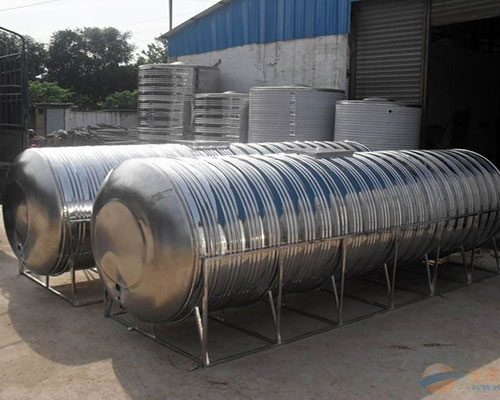Also referred to as Fiber reinforced water tank, GRP panel tank or SMS storage water tank, this is a kind of tank made of resin and fiberglass, also known as a Sheet molding compound. Let me explain it further, step by step.
When it comes to selecting a water tank, you want to get the best, one that can hold your desired capacity and serve you for many years without going back to the market for a replacement. I understand you, and we all want the best.
GRP water tanks have beaten the odds and proven their worth when it comes to selecting the best tank. With so many options out there, choosing the right one can be overwhelming, and I'm here to show you the way.
It is only best if you can go for a tank that you are sure about especially after following the manufacturing process. Each step will tell you whether or not the tank is worth the hype. Without wasting too much of your time, let's jump right into the purpose of the article.
Also referred to as Fiber reinforced water tank, GRP panel tank or SMS storage water tank, this is a kind of tank made of resin and fiberglass, also known as a Sheet molding compound. Let me explain it further, step by step.
I think this is the most important step of them all. Without quality material, all the other measures will be futile. The selected resin has to be durable and resistant to chemical corrosion and other harsh elements.
You can trust our products as we only use tested materials that are free from trifling chemicals that could damage the FRP structure. The resin is first dipped into various chemicals to determine the suitable choice.
When molding the tank, the selected fiber-reinforced material is hydraulically hot pressed to make panels of different thickness and sizes based on the user's needs and specifications.
Here the mold temperature is raised to 150 degrees hot temperature for about five to ten minutes. The method used is the Japan technology to produce the FPR product and ensure that we come up with something worthwhile.
Here we have a drilling machine meant to drill uniform holes on the molded FPR product. The number of panels will depend on the size of the tank that we are about to make. The panels are then combined to come up with a full tank.
Based on these steps, you can clearly tell that the materials used and the processes followed are legit. You do not expect anything but the highest quality tanks in the market. Also, the method used help in avoid issues such as exposure to uncured FPR to the air, which could lead to infections.
This means that the inside surface of the tanks, the part that physically gets into contact with the stored water is at the lowest risk of surface imperfections. This translates to customer benefit regarding reliability and ensuring that the material will not particulate into the stored water.
Due to the ability of the reinforced fiberglass, you can be assured that the tank can withstand different chemicals including chlorine and you do not have to fear that it will wear out any time soon.
From my view, I can confidently say that the GRP tanks are worth the hype. I mean, look at all the effort put in ensuring that users get the best end product. There are no uncertainties, and you can trust the products used even for storing consumption water.
Unlike other methods, these tanks are made in a shorter time, meaning that if you order yours today, you will have it ready within no time. That's a plus concerning convenience.
With this guide, I believe that you are convinced and you would like to try out the tanks. They come at affordable prices, and the value you get exceeds the amount paid. I also hope that you have learned something valuable from this article. If you have any doubts or questions regarding the same or if I missed any point, drop it on the comment section. Do not forget to like and share on your social media platforms.


